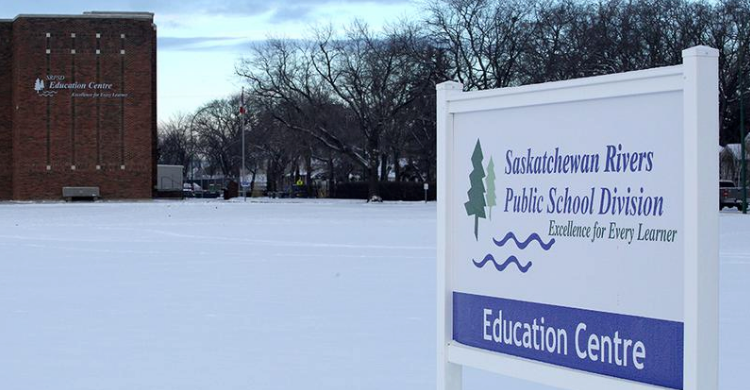By Michael Oleksyn, Local Journalism Initiative Reporter.
The Saskatchewan Rivers School Division highlighted efforts they’ve made to address some of the Truth and Reconciliation Commission’s (TRC) Calls to Action in an update presented at Monday’s regular board meeting.
Superintendent Jennifer Hingley gave the board an update on the school division’s progress. The division has been tracking efforts to respond to those calls since 2017.
Director of Education Neil Finch said he’s confident division is doing fantastic work in the area.
“I think in our leadership group around the system, the leading to learn work that we’ve done has been welcomed and now spreading throughout the school division from our leaders to other employees,” Finch said.
According to the report, Leadership Learning Teams in each high school track student achievement and support individual graduation plans for First Nations and Metis students.
Since the TRC published their reported in 2015, Sask. Rivers has increased its focus on teaching Indigenous languages. They have also focused on giving teachers more opportunities to learn about Indigenous culture through professional development. That includes things like tipi raisings and ribbon skirt workshops.
Finch said they’ve also worked to expand the Following Their Voices program to multiple schools.
“We started with Wesmor being our only school and that would have been 10 or 12 years ago and 10 or 12 years later we have got multiple schools,” Finch said. “It’s increased significantly.”
Following their Voices implementation answers the call for culturally appropriate curriculum.
It is implemented at Wesmor, Carlton, Ecole Arthur Pechey, PACI, Queen Mary, St. Louis and Kinistino. The initiative is designed to raise the educational achievement and participation of Saskatchewan’s First Nations, Métis and Inuit students.
The division has applied for and received funding for to help implement Jordan’s Principle in response to TRC calls to action on child welfare. Jordan’s Principle helps ensure all First Nations children living in Canada can access the products, services, and supports they need, when they need them.
The Mentor program with Jordan’s Principle has expanded with over 37 mentors working in schools to support First Nations students through the funding.
Response to the call for a more culturally appropriate curriculum include providing professional development workshops on culturally responsive topics including land-based learning. As well, the learning model for Literacy, Math and High School also all have Indigenous worldview embedded in them.
The call on protecting the right to Aboriginal Languages has also expanded in the division.
Recent steps include establishing the Cree Language Program at John Diefenbaker School to Grade 3 and establishing a partnership with Metis Nation-Saskatchewan (MN-S) to create a Michif Language and Culture Program at St. Louis and Queen Mary School in Sept., 2021 which continues to this day.
There is also a commitment to add a Cree Language support teacher and land-based learning support teacher for grades 4-8 students in the 2024-25 school year.
Another example is a Cree 10 courses offered at both Carlton and Wesmor Public High Schools. St. Louis is in the process of exploring the offering of their localized Michif at the secondary level in the next year or two.
The division has also created an Indigenous Language Learning Community in Fall of 2021. The group supports Cree and Michif teachers in the division and Language Keepers in early years and high school, a Dakota teacher, a Language Keeper, an educational assistant at Wahpeton, and a Cree teacher at Muskoday.
As part of the call for building capacity for intercultural understanding and mutual respect there has been completion of another cycle of four Pipe Ceremonies. Four meetings were held this year following the Seasonal Pipe Ceremonies, where trustees learned from Indigenous Elders.
Trustees participated in a sweat in June, with an on-the-land event planned for September.
The division hosted a Pipe Ceremony this year at Ecole Arthur Pechey, St. Louis, Riverside and Vincent Massey
One part that was highlighted by Hingley was the development of a Land-based learning networking group which included some senior administration, principals, teachers, students, elders, community partners and Invitational Shared Service Initiative (ISSI) partners from Muskoday and Montreal Lake. This collaboration led to a definition of land- based learning, the development of a land-based learning model based on Cree teachings, language and worldview. The model will be used system wide in Professional Development opportunities and help guide teachers when incorporating land-based learning experiences for their students.
As well, 10 teachers have taken Forest School Training so that the division’s capacity to create land-based learning experiences for students. They will host a Forest School Training professional development on October 6 10 at Little Red Park.
Other areas covered during the meeting include, justice, professional development and training for public servants, education for reconciliation, and sports and reconciliation.
The division has also supported KidsFirst, helped schools access Catholic Family Services, and worked in partnership with the Prince Albert Early Years Resource Centre to address calls to develop culturally appropriate parenting programs.
